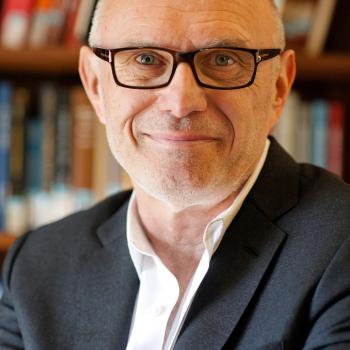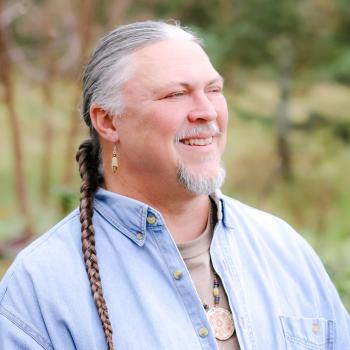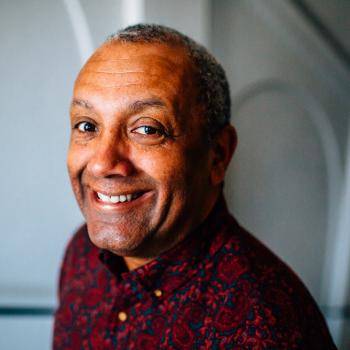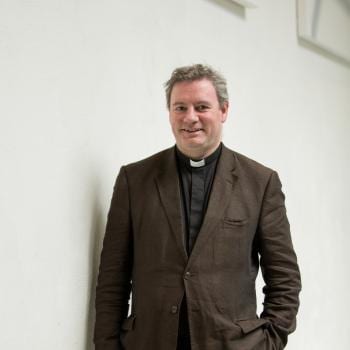
Ephraim Radner, Professor of Historical Theology, Wycliffe College at the University of Toronto

Why do you love teaching and researching about Christian theology?
Theology, of course, involves thinking and talking about God. What could be more wonderful—joyful, challenging, inspiring—than such a pursuit? Theology also involves thinking and talking about human persons in their relationship with God, and God to them. This gets complicated. Taken together, these two aspects cover about everything there is in life, but from a direction that is always bound up with what is most true, good, and beautiful—which means that “doing theology” is, from the perspective of a human activity, the most life-giving thing I can imagine.
One has to focus, however: one cannot in fact deal with “everything”. There are topics to study and limited resources with which to do that in a certain time. I have tended to focus on matters dealing with the theology of the the Church, of the Holy Spirit, and of the Scriptures, especially as all three interrelate. And even here, I have had to narrow things down to certain periods and traditions and approaches. But my hope, both in my own writing and in my teaching, is that these smaller scale reflections are always open to and held accountable by the “everything” that is God’s being and truth in relation to us. What I call the “pantological” aspect of theology—thinking about “everything”—is what keeps us both humble and open, thankful and yearning, all aspects necessary to our Christian faith and hope.
What is one “big idea” in your scholarship?
God is the sole and exhaustive condition of our existence, something we know and grasp only in Jesus Christ. I have moved steadily in my interests towards a focus on what it means to be a “creature”, whose meaning is given in the incarnation, death, and incomprehensible resurrection of Jesus. Unpacking all this involves re-engaging in our modern context realities long faced but more recently forgotten: the limited character of our births, lives, and deaths; the particular and particularistically constraining (and enlivening) ties we have to family and community; the impervious restrictions on our own creative capacities, and so on. Both Christian churches and their modernistically oriented pneumatological claims have, in my reading of history, been running from these realities of divinely wrought creaturehood, subverting in the process both individual and social wellbeing, but also obscuring central truths about who God is.
Who is one of your academic heroes and why do you admire them?
Blaise Pascal, 17th century French mathematician, theologian and writer. Like many in that century, Pascal was open to a vast range of interests founded on the development of a wide spectrum of talents. “Specialization” was a bad word in those days. But he used this “baroque” equipment to gaze upon and to allow himself to be gazed upon by God. His focus in this regard was like a white heat, boring down into the recesses of the human soul’s paradoxical forms so as to observe the sheer miracle of divine life that make us possible as beings. Theologically, what he discovered was “grace”. There was a breadth of interests that Pascal engaged and explored; but by the end of his (short) life, he had managed to deploy them like multiple rays of light through a lens, that brought them together into a singular attention before God, one that was for him, and as a gift to others, “converting”. I admire the utter concentration of his intellect and faith on the one “point” of God’s life.
What books were formative for you when you were a student? Why were they so important and shaping?
Augustine’s Confessions, Homer’s Odyssey, and Mark Twain’s Adventures of Huckleberry Finn. These are all stories of “journeys”, I realize. They are all about searching, yearning, finding and, in Augustine’s Christian view (rightly) about “being found”. I prefer to think of Christianity or the Christian faith in terms of “the Christian life”, that is, of a traversal of years and time, not of a static condition (though our status as children of God in Christ’s body is certainly a “given”). How we “come into being”, how we grow, learn, encounter, struggle, are changed, weaken and die with and among others marks the contours and content of our Christian “being”. Because we are “in” Christ, our following always “takes us along” somewhere and to some place. Reading about journeys in this way —as I said, this is a retrospective judgment—opens us to God.
Read Radner’s Work
A Profound Ignorance: Modern Pneumatology and Its Anti-Modern Redemption
Time and the Word: Figural Reading of the Christian Scriptures
If you ran into me at a conference and didn’t want to talk theology, what would you want to talk about?
Music, art, politics, baseball.
What is a research/writing project you are working on right now that you are excited about?
I am working on (in my head only at this point) a small book on “Christian Politics”, that wants to consider how Christians can conceive of their political “duty” in a context in which (as I believe) “making things better” is not a realistic option in human terms. What might, by contrast, be a “politics of endurance”, which is, I believe, the primary Christian political duty?















